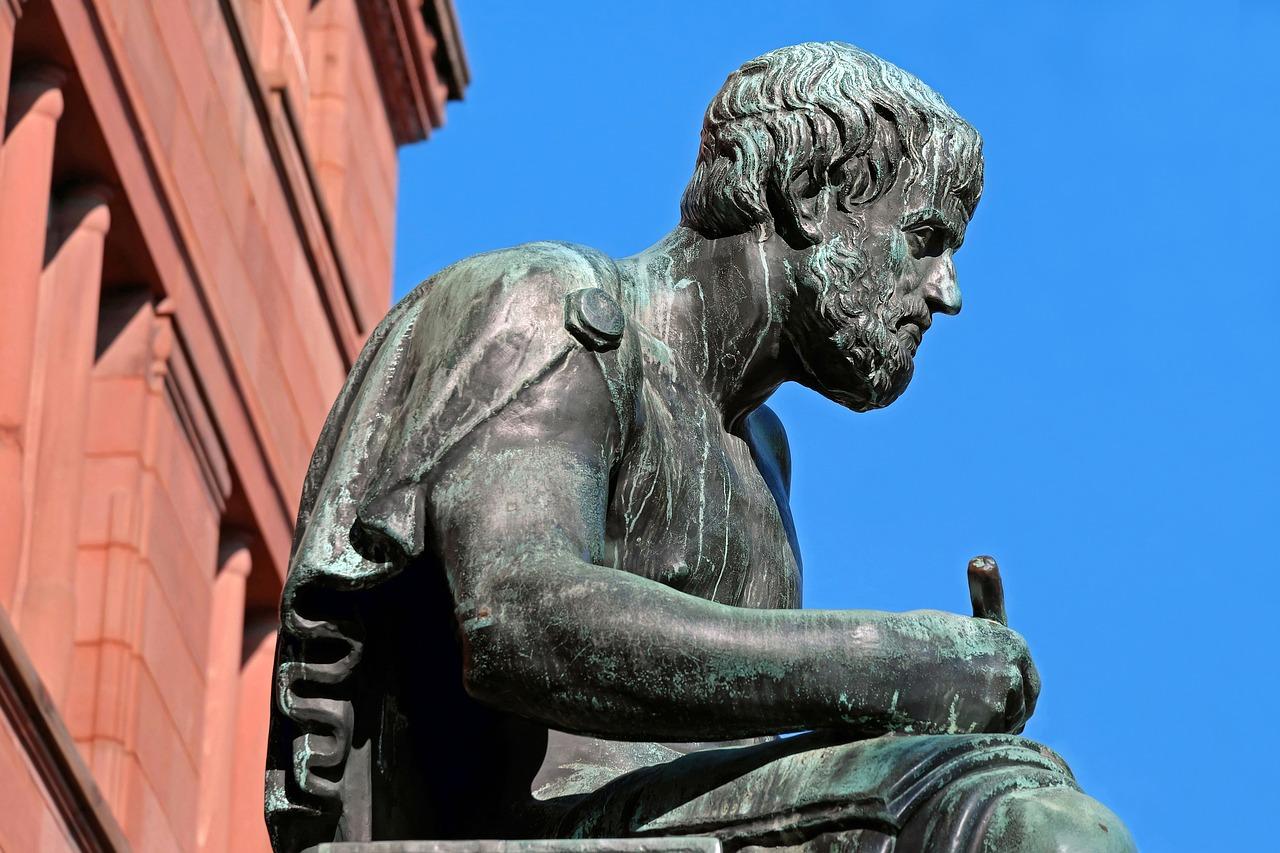Aristotle is known for his teachings on science and empirical science; however, few know his teachings on happiness.
People have always pursued the ever-elusive happiness state, but in the past decade, there has been a concerning proliferation of happiness content online. Open most platforms, and you’ll find health gurus, exercise enthusiasts, wealth coaches, and spiritual leaders promoting their strategies for achieving genuine happiness. But what is happiness?
Aristotle set out to answer this question 2,300 years ago. Praised as The Philosopher by Thomas Aquinas, Aristotle was Plato’s student who, in turn, studied under Socrates. He founded the Lyceum in 335 BCE, the first scientific school in Athens. Aristotle is often considered one of the greatest philosophers because of his contributions to mathematics, botany, physics, agriculture, politics, metaphysics, and more.
According to Aristotle, happiness or eudaimonia is the ultimate purpose of living on this earth. This article explores ways to become happy according to Aristotle’s teachings.

Aristotle’s teachings on happiness
His ideas of eudaimonia are set out in his influential works, the Nicomachean Ethics. He argued that humans are different from rocks, plants, and animals because we possess reason. So, in our pursuit, we should find happiness that is unique to human beings.
Most people believe that acquiring wealth, satisfying bodily pleasures, or pursuing honor is happiness, but the philosopher thought these pursuits lack something vital: intrinsic satisfaction. The Greek word “eudaimonia,” as used by Aristotle, doesn’t directly translate to “happiness,” but to “fulfilled potential” or “activity expressing virtue.”
For something to give you true happiness, it has to be:
- Desired for itself
- Not desired for the sake of something else
- Satisfied all desires and has no evil in it
- Stable
Aristotle believed happiness could be achieved by cultivating virtue, but his approach was more individualistic than the social virtues taught by Confucius.
How to find fulfillment following Aristotle’s teachings
Pursue happiness as an activity
Most of us think of happiness as a state. For example, you may picture enjoying a day with a cold beverage in front of your beach home or people singing your praises in a public forum as true fulfillment. But these are fleeting states; even if you permanently found yourself in that state, it would lose its joy quickly. Plus, we want these things not for themselves, but because we feel they will give us something else, like accolades or indulgences.
According to Aristotle, a good life would consist of acquiring intellectual virtue, contemplation, and practical wisdom (phronesis). Happiness is an exercise of virtue; to achieve it, you must act morally and have all virtues (not just some). That’s why achieving true happiness is a continuous exercise rather than one grand moment most people envision.
Golden mean
Like the Middle Path in Buddhism, Aristotle’s Golden Mean is about balance. However, the Golden Mean is slightly different because it promotes moderation between excess and deficiency of virtues. On the other hand, the Middle Path is about avoiding the excesses of sensual pleasure-seeking and harsh self-denial.
We praise virtues such as courage, generosity, justice, and temperance. All these virtues are midway between two vices. For example, bravery is midway between rashness and cowardice, while justice is the golden mean between giving or getting too much and giving or getting too little.
Friendship
Friendship and community are vital for achieving eudaimonia since we are social beings. But this is not the superficial, one-sided friendship and admiration most people yearn for. It’s the kind that lasts a lifetime and takes time to build.
Aristotle extols this friendship as “a complete sort of friendship between people who are good and alike in virtue …” He even says it is above justice and honor.

Overcoming instant gratification through practice
In the Nicomachean Ethics, the philosopher laments: “The mass of mankind is quite slavish in their tastes, preferring a life suitable to beasts.” He believed a life of seeking bodily pleasures and immediate gratification was that of cattle and not befitting humans.
He acknowledges that people have “weakness of the will” or “akrasia,” and certain pleasures may blind or lead us astray from the moral path. Still, we can strengthen our will by practicing. He gives the example of an archer who finally hits the bull’s eye through constant practice.
Finding your purpose
It would be best if you had a purpose to flourish in life. Everyone’s purpose in life is different, but we all seek happiness. When you reflect at the end of your years, you should be satisfied with the legacy you’ve left behind and the path you took to accomplish it.
It may take longer to achieve your purpose because, as they say, life happens. Still, you can find smaller goals to help you or others reach this long-term plan. For example, you may not be a bestselling author, but you can become an editor or literature teacher.
Practical wisdom
Achieving happiness goes beyond contemplating morality and virtues. You have actually to do the right thing. Aristotle believed education should cultivate morality, so practical applications should accompany theories.
Happiness is a journey
People yearn to achieve happiness, and Aristotle agreed it was the best thing we could do. However, unlike modern teachers’ keys to happiness, which are primarily irrelevant, he believed we can achieve this through exercising virtues throughout our lives. Eudaimonia, or a flourishing life, consists of all the things you have accumulated throughout your life that have led to human enrichment and personal growth, including friendship, health, knowledge, and virtue of character. It’s a work in progress, not a state.
Follow us on X, Facebook, or Pinterest

